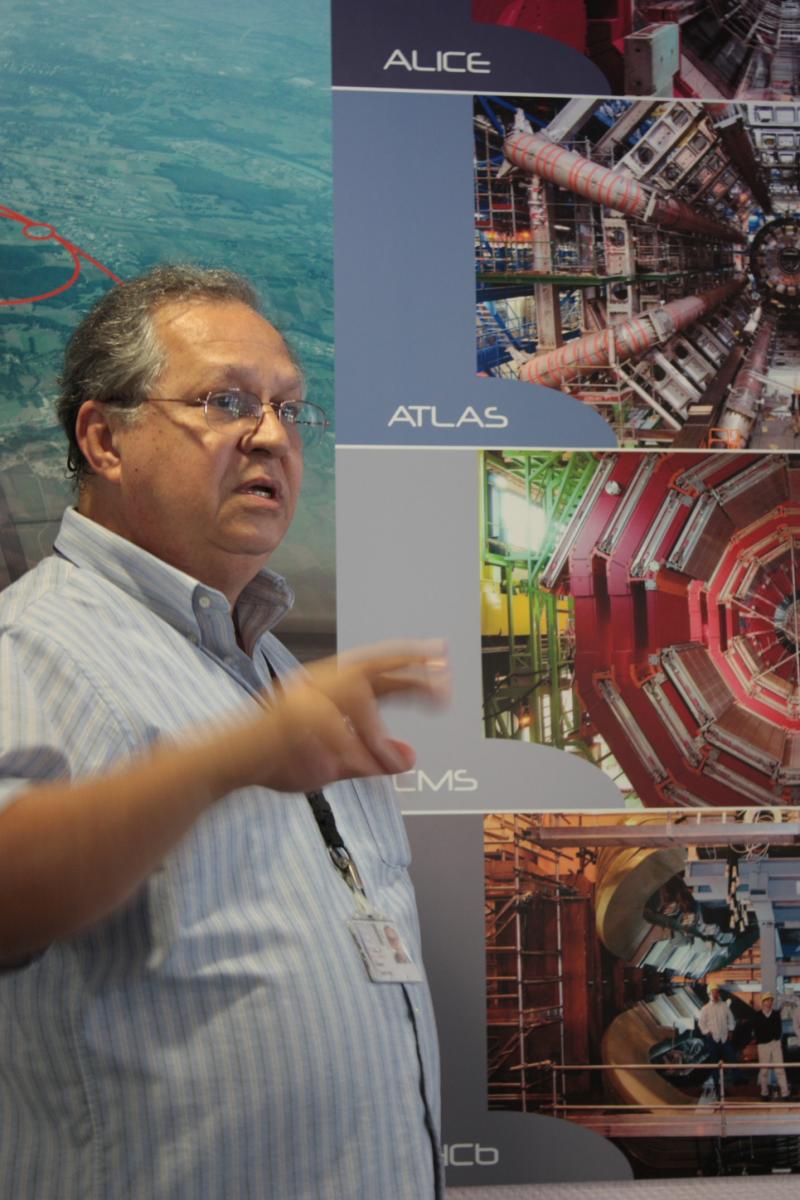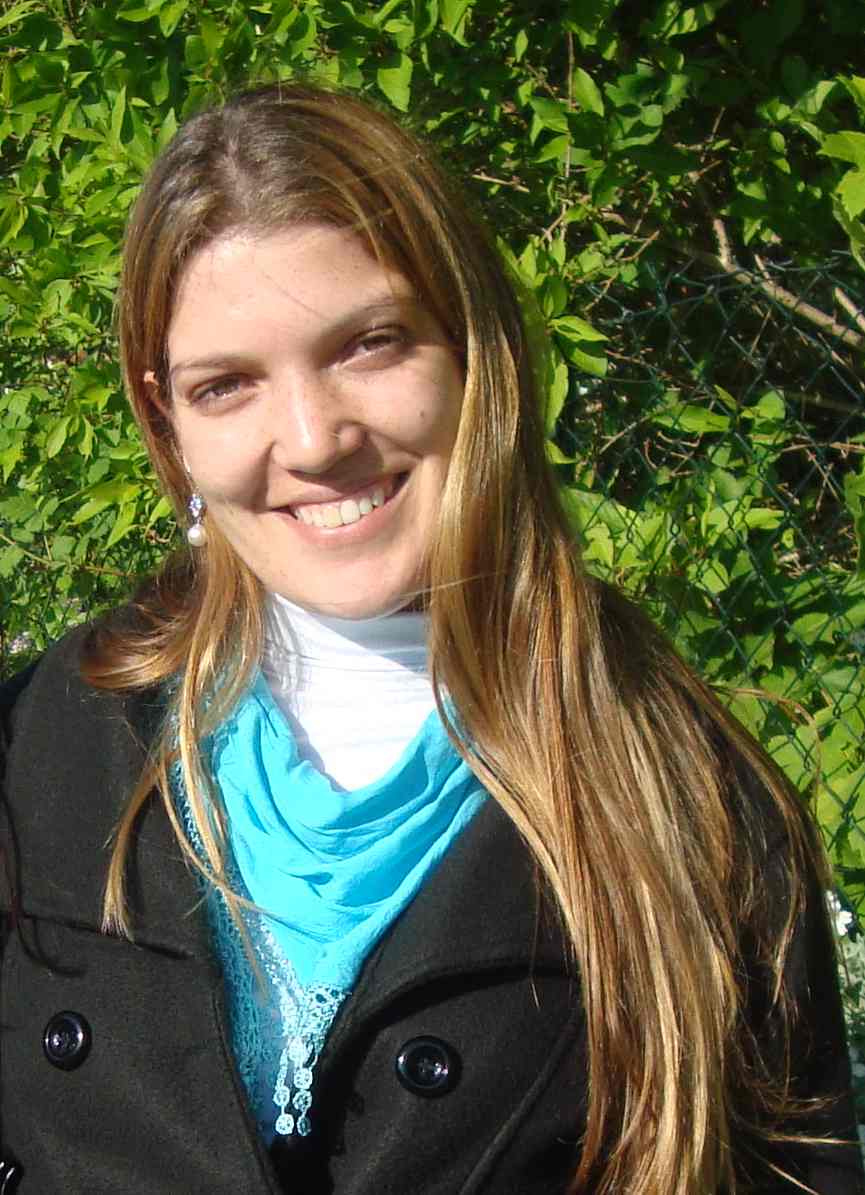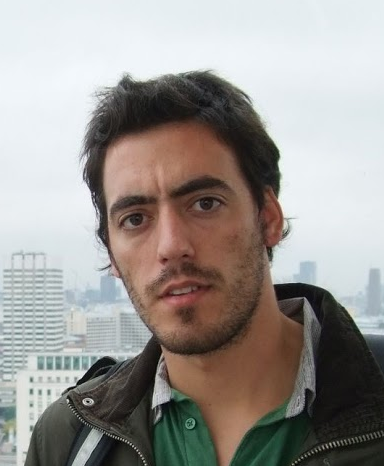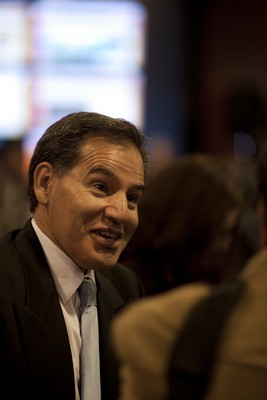EPLANET - Meet some of the participants
We met five Latin-American physicists during their recent stay to CERN and asked them to share their experiences from the EPLANET programme and their future plans...

“Following our participation on the HELEN program program we decided to participate following the initiative of Luciano Maiani. We thought this program as a natural continuation of our previous collaboration with Maiani.
First of all, amongst our future plans is to increase our contribution to the High Energy Physics community. As a consequence of this project we have a higher presence at CERN working directly in the experiments. I believe sincerely that this program have to continue and open to more participants. For example in Brazil the program "Science without Borders" has recently been established by the government, addressing scientists at different levels of their carreer: from undergraduate student to PhD graduates and Senior Researchers. This is very important because it gives from a very early stage the opportunity to young scientists to visit laboratories like CERN. As you probably know, EPLANET doesn't support grants for undergraduate students.I think that the program should continue for many years and I hope that it will be possible to consolidate the Latin American Groups. “
Alberto Santoro, UERJ, Brazil

“My name is Cristiane Jahnke and I am a PhD student from Sao Paulo, Brazil. I am here at CERN with an EPlANET fellowship for three months. I arrived on the 1st of April and I will stay until the 28th of June.It was my first time at CERN. I knew about the programme since my supervisor from Brazil is a Team Leader of the ALICE collaboration. My research is with ALICE Collaboration, where I am working on Electron Spectrum from heavy-flavor, in p-Pb data. It is very nice being at CERN, because we can interact with other people who know a lot of high energy physics and learn a lot. I plan to come back to CERN for more 9 months next year.”
Christiane Jahnke, PhD student, University of Sao Paolo, Brazil
 “I had the chance to be part not only of EPLANET, but also on the former HELEN programme. My involvement with CERN started back in 2006 as an undergraduate student, and thanks to both HELEN and EPLANET. I've been able to come to CERN several times during my PhD period. My thesis work (2007-2012), done in the context of both EPLANET and HELEN, consist mainly in the search for extra dimensions on the ATLAS experiment. Theories beyond the well established Standard Model postulate the existence of extra dimensions, which would manifest by the detection of very energetic particles. With the ATLAS detector it's possible to detect such particles or constrain their existence if not detected. My thesis represent the first search of extra dimensions in the diphoton final state in ATLAS, and we were able to set the most stringent constraints up to then. Now as a postdoctoral researcher I'm working on the measurement of the properties of the recent discovered higgs-like particle. This is one of the most active topics in the field and probably the most fascinating. I would keep working on this for the next years, since 2015 LHC-data would be of great importance for this matter.”
“I had the chance to be part not only of EPLANET, but also on the former HELEN programme. My involvement with CERN started back in 2006 as an undergraduate student, and thanks to both HELEN and EPLANET. I've been able to come to CERN several times during my PhD period. My thesis work (2007-2012), done in the context of both EPLANET and HELEN, consist mainly in the search for extra dimensions on the ATLAS experiment. Theories beyond the well established Standard Model postulate the existence of extra dimensions, which would manifest by the detection of very energetic particles. With the ATLAS detector it's possible to detect such particles or constrain their existence if not detected. My thesis represent the first search of extra dimensions in the diphoton final state in ATLAS, and we were able to set the most stringent constraints up to then. Now as a postdoctoral researcher I'm working on the measurement of the properties of the recent discovered higgs-like particle. This is one of the most active topics in the field and probably the most fascinating. I would keep working on this for the next years, since 2015 LHC-data would be of great importance for this matter.”
Xabier Anduaga Del Popolo, Post Doctoral Researcher – Universidad Nacional de La Plata.
“ Probably one of most rewarding aspects of being a particle physicist is the opportunity to visit and live all around the world. I certainly had this in mind when I decided to get a Ph. D., and after completing graduate school I knew that working at CERN would be in my future. When I learned about the opportunity to live and work in Chile and do particle physics, I knew that all these long nights in graduate school were really worthy. Two years later I’ve enjoyed both Chilean and European summers while becoming a researchers working with the ATLAS experiment, thanks in large part to the EPlanet programme.
Experimental physics is emerging in Chile due to the strong economy and significant funding from the government for science and technology research and innovation. While Chile is known internationally for hosting the European Southern Observatory in the northern Atacama desert, the country’s experimental research programmes in particle and nuclear physics are rapidly expanding in terms of public awareness and government funding. A significant part of the research is in collaboration with CERN and the ATLAS experiment. The group at Universidad Técnica Federico Santa María now hosts a Tier-2 grid site and has a well-established research programme in Heavy Ion physics. Thanks to the EPLANET programme I managed to establish new research and service roles on the ATLAS experiment.
Ryan Machenzie White (in the middle) surrounded by students working in the Heavy-Ions ATLAS trigger.
During the first EPLANET trip, I was ramping up as software coordinator and on-call shifter during 2012 data taking for the electron/photon high level trigger group for ATLAS. During subsequent EPLANET trips, I have focused on software development with the electron/photon trigger group in preparation for the 2015 data-taking. I enjoy the opportunity to work with experts in electron/photon reconstruction, the trigger menu group and core software developers. Each trip I return to Chile with more opportunities for students, who want to become involved in experimental particle physics, to conduct research in the ATLAS trigger community. I am working with a graduate student, studying the effect of pileup on the calorimeter shower shapes that are used to identify photons in the high level trigger.I look forward to an EPLANET trip in the near future with Chilean students and postdocs. The EPLANET programme is providing the opportunity to build an ATLAS research group in a society that could not have considered funding scientific and technological research at this level a decade ago.”
Ryan Mackenzie White, Universidad Técnica Federico Santa María, Chile
 The HELEN programme was crucial for our group during the installation phase of ALICE. Now E-Planet is playing a key role for the consolidation of our participation in the ALICE collaboration. The weakness of our research groups in Mexico is the lack of continuity in financial support. The changing conditions of our economies as well as the political uncertainties have always affected research groups which are part of long term projects.
The HELEN programme was crucial for our group during the installation phase of ALICE. Now E-Planet is playing a key role for the consolidation of our participation in the ALICE collaboration. The weakness of our research groups in Mexico is the lack of continuity in financial support. The changing conditions of our economies as well as the political uncertainties have always affected research groups which are part of long term projects.
In that sense, E-Planet has been able to give us assurance. We have now presence in the projects of which we are in charge.We used to live in uncertainty and "planing" has ben alsways a luxus in Latin America. E-planet is working the miracle of "planing" in our community.
Gerardo Herrera Corall, CINVESTAV, Mexico
